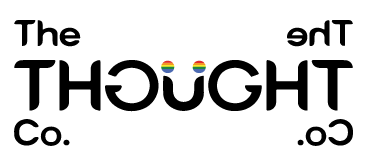Feeling like an emotional sponge with your fam?
You might be enmeshed …
A lot of times when I am in sessions with clients, the word ‘codependent’ gets thrown around and we often end up with a mis-definition of what it actually is.
Which leads me to question: “Does everyone think they are codependent or is it just a term they've picked up on social media that's now part of our urban slang?”
My clients say things like, "I am codependent on my family for my feelings or my happiness", but are they really codependent or are they having a hard time separating their feelings from that of their families? This is where the term enmeshment comes in.
Enmeshment describes a relationship where personal boundaries are unclear. This often happens on an emotional level, where people feel each other's emotions or one person's emotions escalate the other's. A good example is when one partner gets anxious and the other becomes anxious too. They are unable to separate their own emotional experience from the other's.
Enmeshment is commonly seen in family therapy, where therapists discuss "enmeshed families." These families are disproportionately involved in each other's lives, and emotions are mirrored. This typically occurs between parent and child; making it difficult for the child to become emotionally independent. Children feel like their parent's feelings are more important. This can lead to codependency in adult relationships.
Codependency is a different type of relationship where people are overly reliant on each other. It can take many forms, like emotional, mental, physical, or spiritual dependence. Someone in a codependent relationship might heavily rely on their partner to meet their needs and make them happy.
While codependency and enmeshment are completely separate concepts, they are similar. Enmeshment often leads to codependency. In both cases, people feel the other person's emotions and believe their own well-being is tied to the other.
Codependency and enmeshment can manifest in similar ways. People in these relationships might avoid conflict, prioritize others' needs over their own, and struggle to set boundaries. This can lead to feelings of guilt, low self-esteem, and a distorted sense of responsibility for others' emotions. They might even find themselves doing things they dislike simply to avoid abandonment.
Understanding these concepts can be the first step towards disentangling yourself from an unhealthy dynamic.
If you find yourself resonating with these concepts, do not worry … there is hope! Therapy can be a safe space to explore your family dynamics and develop a stronger ‘sense of self’. Through self-reflection and exercises, you can learn to set healthy boundaries and build more fulfilling relationships. It is important to remind yourself, you are not alone. Enmeshment and codependency is more common than we think it is, but by working on it, you can develop a healthier sense of self and create more balanced connections with others.
Unravelling codependency and enmeshment can be a difficult, long and a frustrating journey, but it's not impossible. Through self-awareness, setting boundaries and seeking support, you can reclaim your independence and build healthier, more fulfilling relationships.
PS: A strong healthy relationship should complement your life, not confine you!
Enmeshment Vs. Codependency Enmeshment Vs. Codependency
References
- American Association for Marriage and Family Therapy (AAMFT). (2023, January 09). Codependency. https://www.aamft.org/About_AAMFT/Pos_on_couples.aspx
- Mayo Clinic. (2021, August 27). Codependency. https://health.clevelandclinic.org/codependent-relationship-signs
- National Institute of Mental Health (NIMH). (2021, December). Codependency. National Institutes of Health (.gov). https://psychcentral.com/lib/symptoms-signs-of-codependency
- Psychology Today. (2023, April 12). Enmeshed family. Psychology Today. [[https://www.psychologytoday.com/us/blog/between-the-lines/202212/untangling-enmeshed-boundaries-grown-children]


